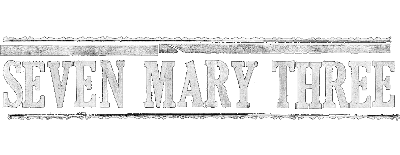Members
 4 Male
4 Male
Origin
 Williamsburg
Williamsburg
Genre
 Alternative Rock
Alternative Rock
Style
 Rock/Pop
Rock/Pop
Mood
---
Born
Origin
Genre
Style
Mood
---
Born
![]() 1992
1992
Active![]() 1992 to Present...
1992 to Present...
Cutout![]()
Alternate Name
7M3, 7 Mary 3
5 users
4 users
4 users
4 users
4 users
Artist Biography
Available in:
Seven Mary Three, occasionally abbreviated to 7 Mary 3 or 7M3, is an American hard rock band. They have released seven studio albums and one live album, and are best known for their hit singles "Cumbersome", "Water's Edge", "Lucky", and "Wait".
Seven Mary Three formed in 1992 when Jason Ross and Jason Pollock met while attending The College of William & Mary in Williamsburg, Virginia. Originally an acoustic duo, Ross and Pollock split song-writing duties and performed with Ross singing and Pollock playing guitar. Later, drummer Giti Khalsa and bassist Casey Daniel joined the band, and the foursome played coffeehouses and clubs. Paul Smith of Megaphone contributed guitar tracks to Seven Mary Three's second and third studio albums (Rockcrown, and Orange Ave.), and toured as an additional guitarist with the band in support of both albums.
The present members of the band are Casey Daniel, Jason Ross, Thomas Juliano, and Mike Levesque. Giti Khalsa has stopped touring with the band, but still performs on studio recordings.
Jason Pollock revealed in The Cavalier Daily that they came up with the name while watching the 1970s TV series CHiPs. '7 Mary 3' was the call sign for Officer Jon Baker, who was played by actor Larry Wilcox. (7M3: police radio call sign; 7 designates the patrol beat, M for Mary designates that he is a motorcycle unit and 3 is his unit number.) Pollock noted, "There's no great significance or anything. We were just tired of trying to think of a cool name."
1994's album Churn, a self-produced independent release garnered the band airplay on an FM rock station in Orlando, Florida for the future hit single "Cumbersome". Given this minor success, the band relocated to the Orlando area where they continued to expand their fan base. This regional success soon caught the attention of major-label scouts. In May 1995, Ross, Pollock, and Khalsa graduated from William & Mary and moved to Florida. The band signed with Mammoth and rerecorded the songs on Churn, plus two new ones, to create the commercially successful American Standard in 1995. Despite criticism of mimicking Pearl Jam and other alternative rock acts, only seven months after its release, American Standard achieved platinum status. This accomplishment can certainly be attributed to the success of "Cumbersome," which was a Top 40 hit, as well as another popular single, "Water's Edge" and "My My".
After touring throughout 1996, the band returned to the studio for a follow up to American Standard. During this time, Mammoth and Atlantic split, forcing Seven Mary Three to sign with Atlantic Records, releasing RockCrown in 1997. The album saw the band deemphasize hard rock, focusing more on acoustic folk rock and a "traditional singer/songwriter" style. Rock Crown did not match fan expectations, reaching No. 75 on the Billboard 200 and failing to match the success of its predecessor.
A second effort under Atlantic, Orange Ave. debuted the following year and charted considerably lower; although, its single "Over Your Shoulder" performed exceptionally. In an interview with Rolling Stone, Giti Khalsa explained the differences between the albums as a result of the band's maturity and position in life:
"We made American Standard when we were fresh out of college, and it represented that time. With Rock Crown, it was very much a response to going from playing bars and fraternities to getting a record deal to selling a million records in a year. And Orange Ave. is a response to the last few years and us being a little further away than at the beginning and being able to look back and go, 'Okay, I get it now.'"
In 1999 guitarist Jason Pollock left the group and was replaced by Thomas Juliano. In the summer of 2001, Seven Mary Three returned to Mammoth Records and producer Tom Morris. The resulting efforts became The Economy of Sound. This fifth studio album includes the single Wait, a catchy track that reached No. 7 on Hot Mainstream Rock Tracks and became among the most well known songs of Seven Mary Three. The track demonstrated Seven Mary Three's evolving style and also served as the lead single from the Crazy/Beautiful film soundtrack.
After The Economy of Sound, the group shifted once again to DRT Entertainment and, in 2004, released Dis/Location. Their sixth studio album, it failed entirely to chart as did its only single. However, four years later, Seven Mary Three proved their resiliency by presenting a seventh album, day&nightdriving, under Bellum Records.
In December 2008, the group re-released their long out-of-print debut album Churn. On February 9, 2010, Seven Mary Three released the live acoustic album Backbooth.
Wide Thumb
Clearart
Fanart

Banner
User Comments
 No comments yet..
No comments yet..

 50%
50%




